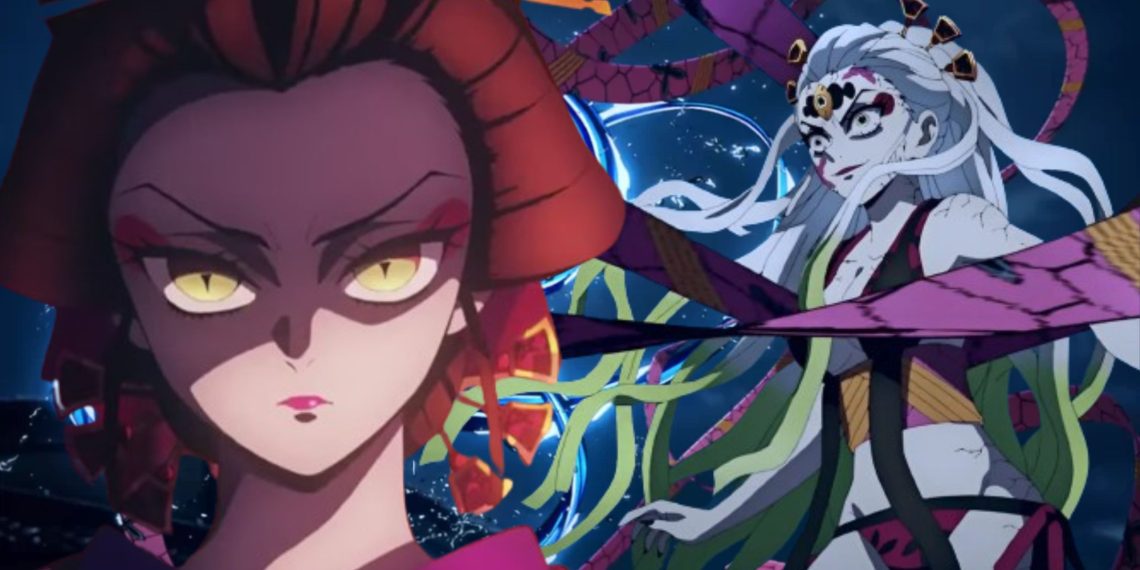In the vast and perilous world of “Demon Slayer“, few characters are as captivating and tragic as Daki, one of the formidable Upper Moon Demons.
Known for her deadly abilities and cunning, Daki’s demise came at the hands of the dynamic duo, Zenitsu and Inosuke, during the intense Entertainment District arc.
While her death marked the end of a fierce battle, it also revealed a poignant moment between Daki and her brother, Gyutaro, as they shared their final moments together.
Their story is one of sorrow, resilience, and a deeply rooted connection that transcends their demonic forms.
Yet, there’s another layer to Daki’s character that, once uncovered, makes her story even more heartbreaking: the true meaning behind her real name.
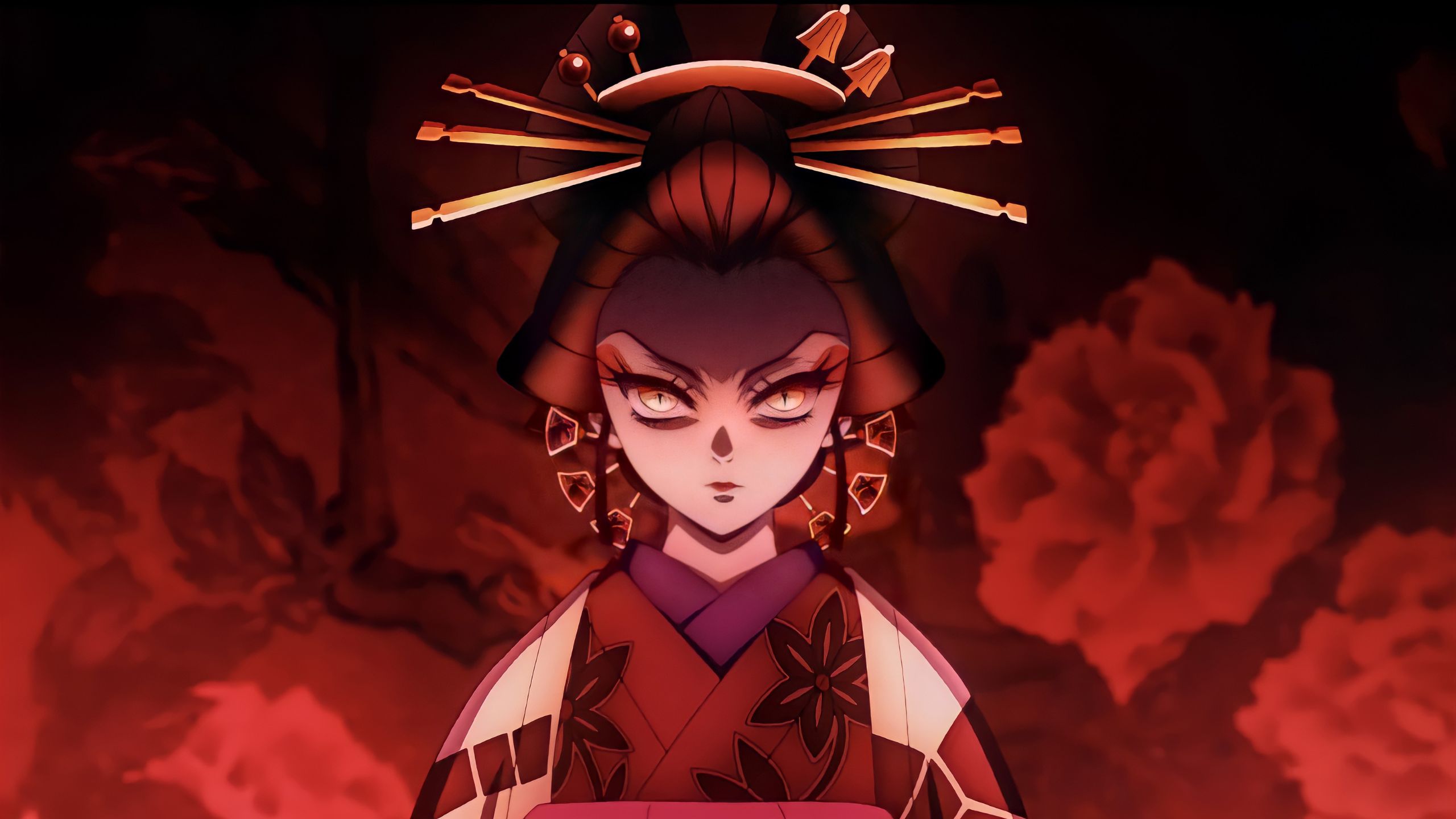
Daki, a name that strikes fear into the hearts of many, wasn’t always a demon.
Before her transformation, she was a human with her own hopes, dreams, and struggles. Her real name was Ume, and this seemingly innocent name holds a dark and tragic meaning in Japanese kanji.
The kanji for “Ume” (梅うめ) translates to “plum,” a fruit that is often associated with beauty and resilience in Japanese culture.
However, in a different kanji form, Ume can also be written as “黴ばい毒どく,” pronounced “Baidoku,” which translates to “syphilis” in English.
This is the same disease that claimed the life of Daki’s mother, adding a layer of irony and tragedy to her existence.
Daki’s Human Origins: A Life Shaped by Tragedy
To understand the full weight of Daki’s story, we must go into her past, back to a time when she was just a human girl trying to survive in a harsh and unforgiving world.
Born into the lowest caste of the Entertainment District, Daki’s life was fraught with suffering from the very beginning.
The Entertainment District was a place where beauty was both a curse and a commodity, and those who failed to meet the high standards of the oirans and courtesans were discarded without a second thought.
It was in this cruel environment that Daki, or Ume as she was known back then, was born.
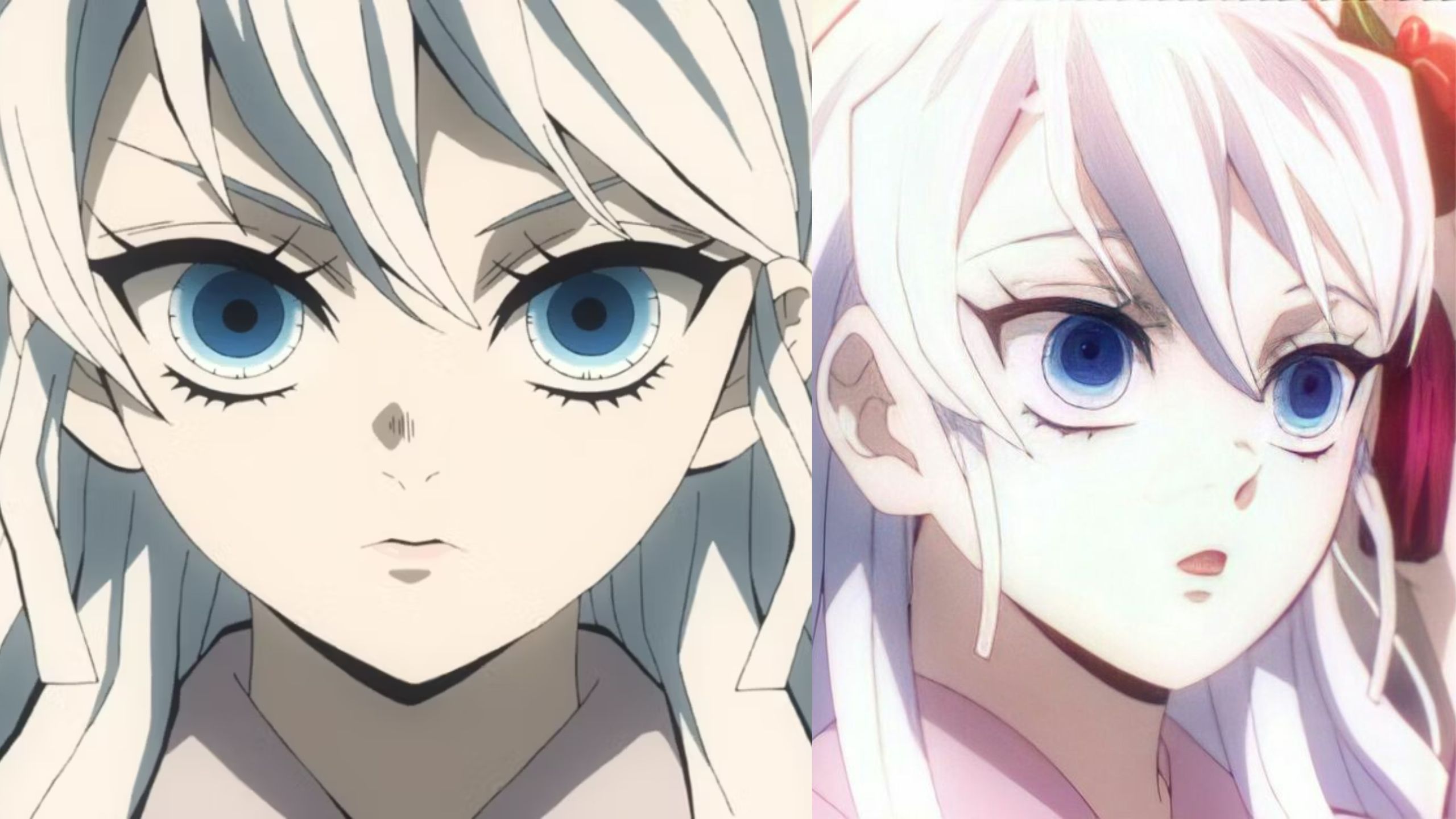
Daki’s mother was a bitter and abusive woman who took out her frustrations on her children.
Gyutaro, Daki’s older brother, tried his best to shield her from their mother’s wrath, but their lives were a constant struggle.
The identity of Daki’s father is never revealed in the series, and it is implied that he was just one of the many customers who visited their mother.
This lack of a stable family structure only added to the siblings’ hardships. Their mother’s abuse reached a breaking point when she attempted to kill Daki in a fit of rage.
This event forced Gyutaro to flee with his sister, and they began living on the streets, scraping by with whatever they could find.
It was a life of poverty and desperation, and the siblings had to rely on each other for survival.
Despite the dire circumstances, Daki’s striking beauty began to attract attention, and it wasn’t long before she caught the eye of those in the upper echelons of the Entertainment District.
A Brief Glance of Hope: Daki’s Rise in the Entertainment District
Daki’s beauty was both a blessing and a curse. Her delicate features and enchanting presence made her a prized possession in the eyes of the Entertainment District’s elite.
She was soon taken in by one of the upper castles, where she was groomed to become an oiran a highly skilled and respected courtesan.
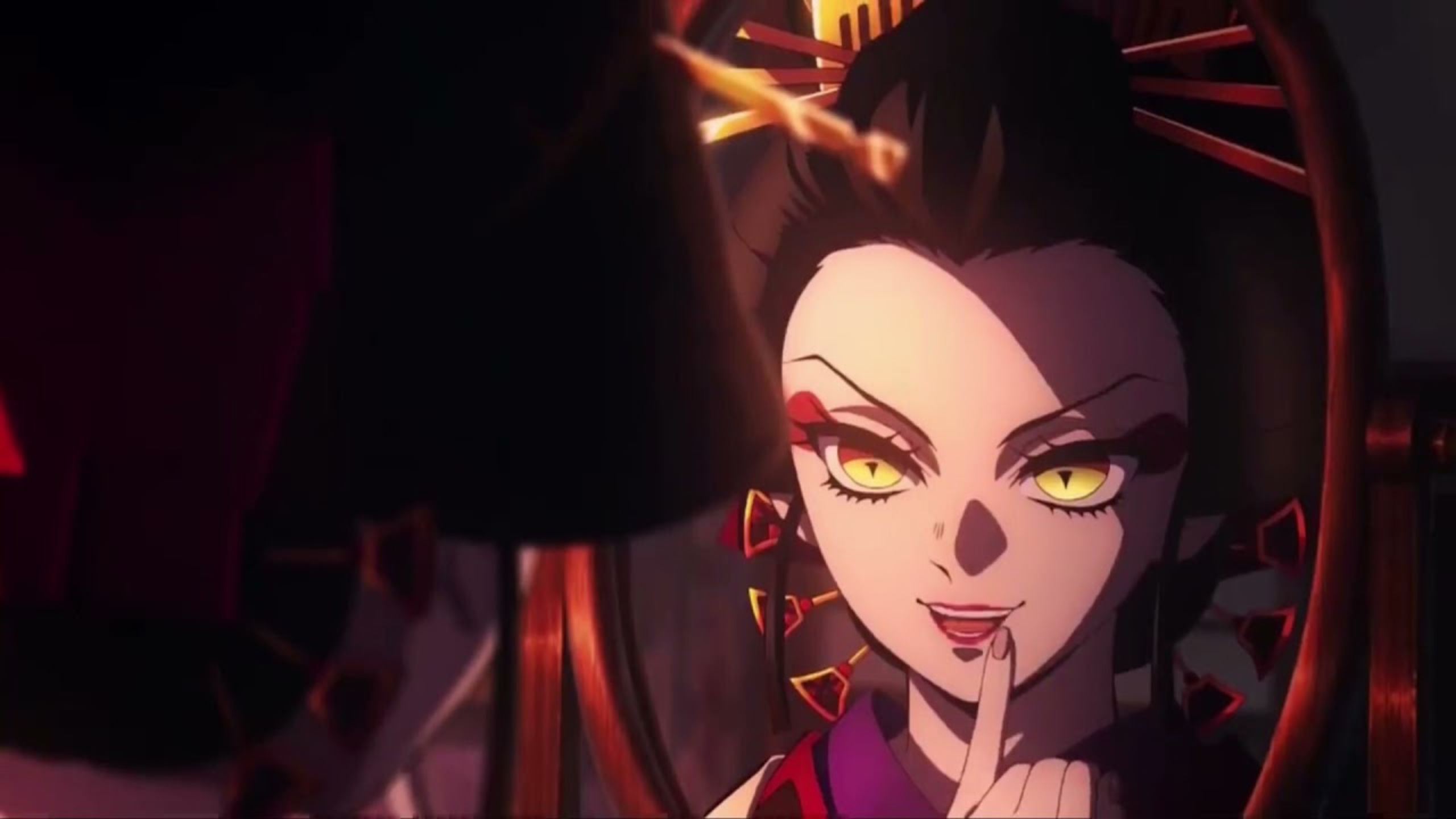
In a world where appearance was everything, Daki’s face became her most valuable asset, allowing her to climb the ranks and earn the admiration of many.
Gyutaro, ever the protective brother, took on the role of Daki’s collector, ensuring that she was treated with the utmost respect and that no harm came to her.
The siblings, who had once struggled to survive on the streets, now found themselves in a position of relative power and security.
For a brief moment, it seemed as though they had finally escaped the horrors of their past.
However, this fragile sense of security was shattered when a customer insulted Gyutaro in Daki’s presence.
In a fit of rage, Daki stabbed the man in the eye, an act that would have severe consequences. The retaliation was swift and brutal Daki was captured and burned alive for her transgression.
Gyutaro, unable to save her, was left to watch as his sister was consumed by flames.
It was in this moment of despair that the siblings encountered Douma, an Upper Moon Demon who offered them a way out a chance to escape death and become demons themselves.
The Transformation: From Ume to Daki
The transformation from human to demon is a central theme in Demon Slayer, and Daki’s story is no exception.
After being saved by Douma, the siblings were granted the power to live on as demons, with Gyutaro and Daki becoming a single entity the Upper Moon Six Demon.
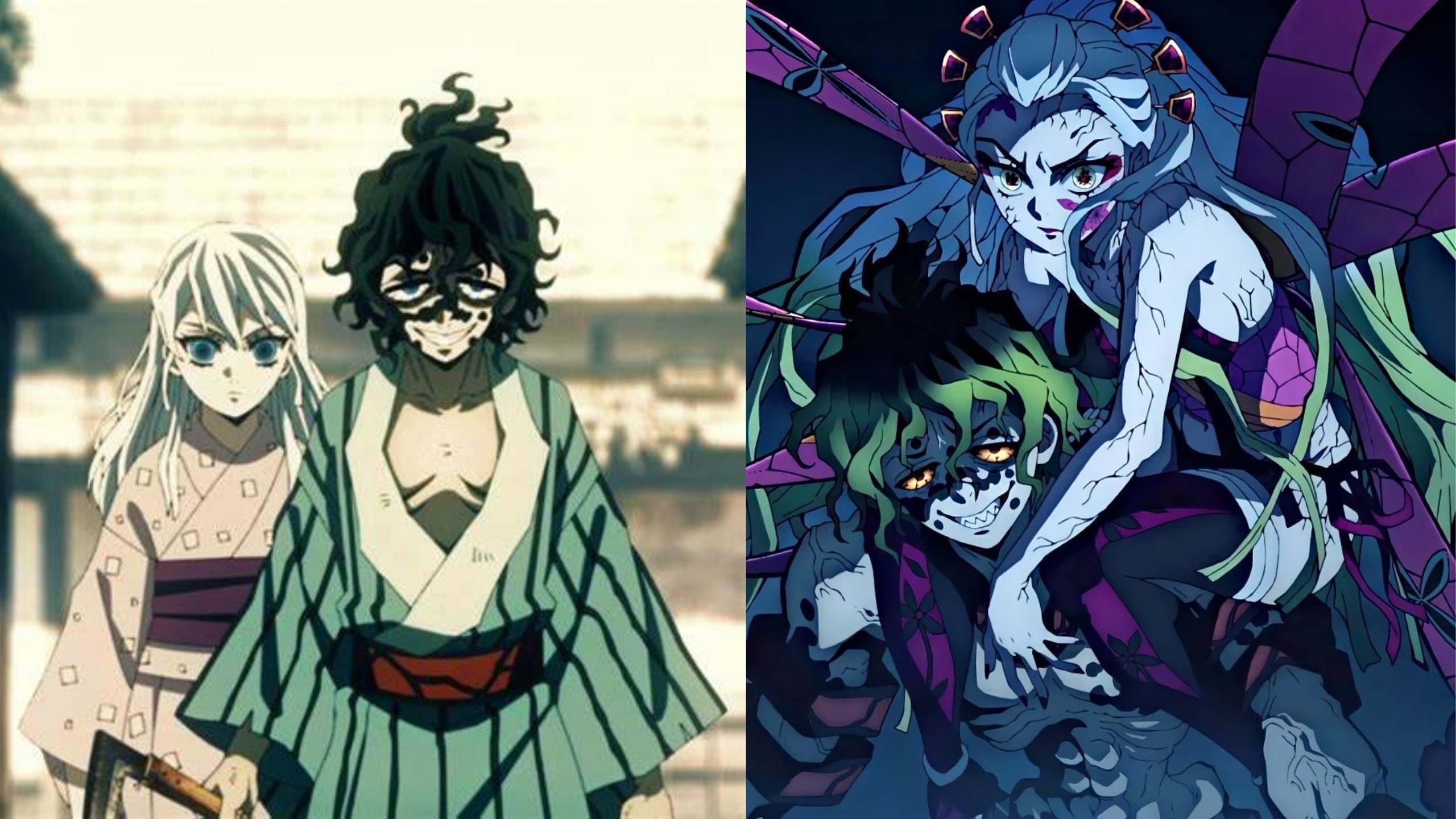
This new form gave them incredible strength and abilities, but it also came with a heavy price.
They were no longer human, and their bond, while stronger than ever, was now tainted by their demonic nature.
Daki’s name change was symbolic of her new identity. No longer the vulnerable Ume who struggled to survive in the harsh world of the Entertainment District, she was now Daki a powerful demon who could bend others to her will.
However, despite her new power, the scars of her past never truly healed. The name “Daki” became a mask, hiding the pain and suffering that had shaped her life.
Hidden Meaning Behind Ume: A Name Tied to Suffering
As mentioned earlier, the name Ume, while seemingly innocent, carries a deeper and more tragic meaning.
The kanji for Ume can also be written as “黴ばい毒どく” (Baidoku), which translates to “syphilis”—the disease that took the life of Daki’s mother.
This revelation adds a layer of irony and tragedy to Daki’s story, as her very name is a constant reminder of the suffering that plagued her family.
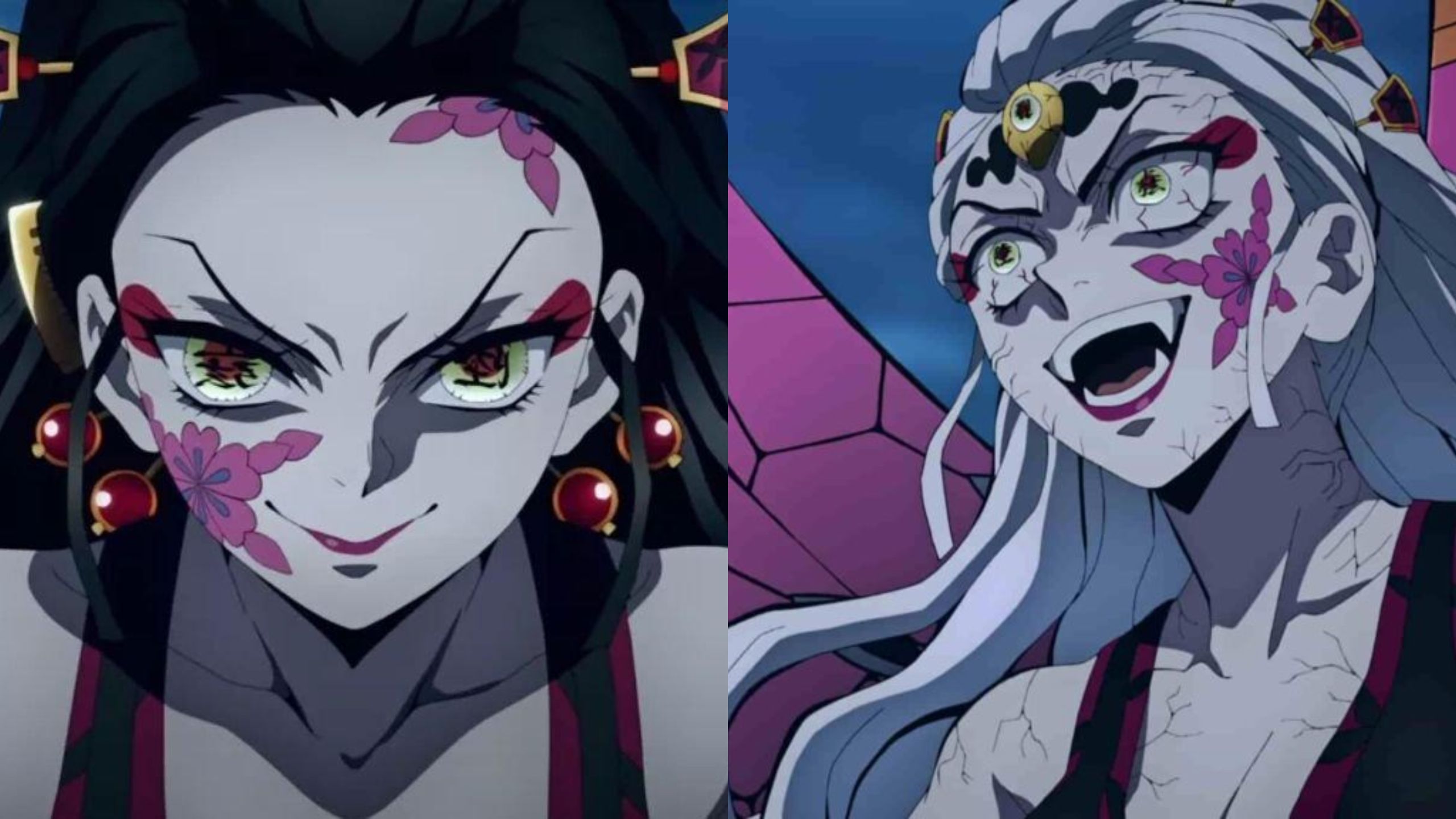
Gyutaro had already mentioned that Daki’s real name was the same as the disease that killed their mother, but the significance of this statement may have been lost on those unfamiliar with kanji.
The duality of the name Ume reflects the duality of Daki’s life a life that was beautiful on the surface but marred by pain and tragedy beneath.
Shiraume: A Name with a Hidden Purpose
In the Entertainment District, names were more than just labels—they were a reflection of one’s status and identity.
Daki’s beauty earned her the nickname “Shiraume,” which translates to “white plum.”
In Japanese culture, white plum blossoms are often associated with purity and elegance, qualities that Daki undoubtedly possessed.
However, the name “Shiraume” may also have served another purpose concealing the true meaning of her real name.
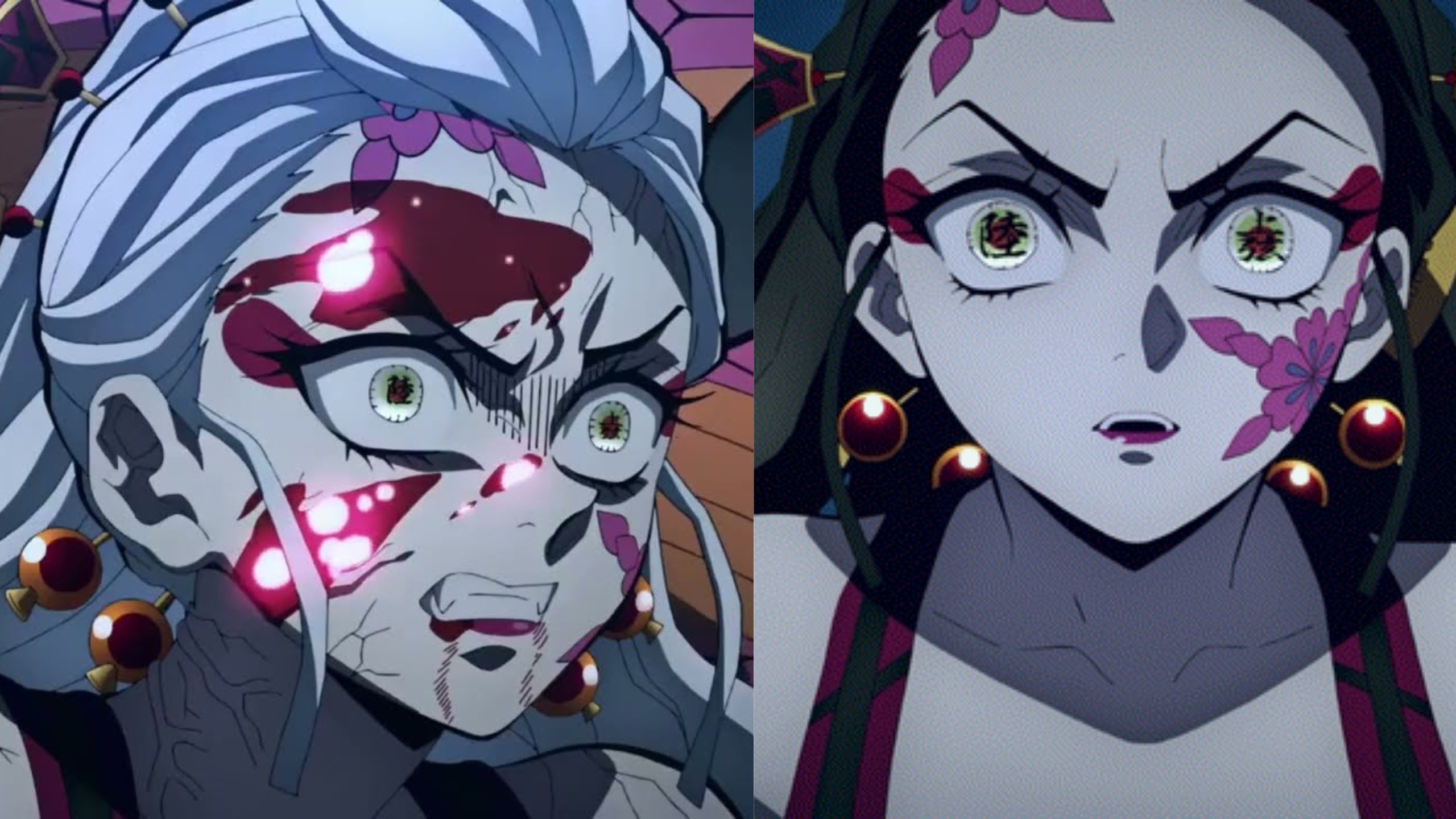
By adding “Shira” to her name, those around Daki may have been attempting to mask the dark connotations of the name Ume.
The nickname allowed Daki to rise to prominence in the Entertainment District, earning her the admiration of many and solidifying her status as one of the most popular oirans.
Yet, beneath the surface, the name Shiraume was a façade a way to hide the painful truth of her past.
Legacy of Daki and Gyutaro: A Tale of Tragedy and Resilience
Daki and Gyutaro’s story is one of tragedy and resilience. Despite the hardships they faced, the siblings remained deeply connected, relying on each other for survival in a world that had abandoned them.
Their transformation into demons was a last-ditch effort to escape the suffering that had defined their lives, but it ultimately led to their downfall.
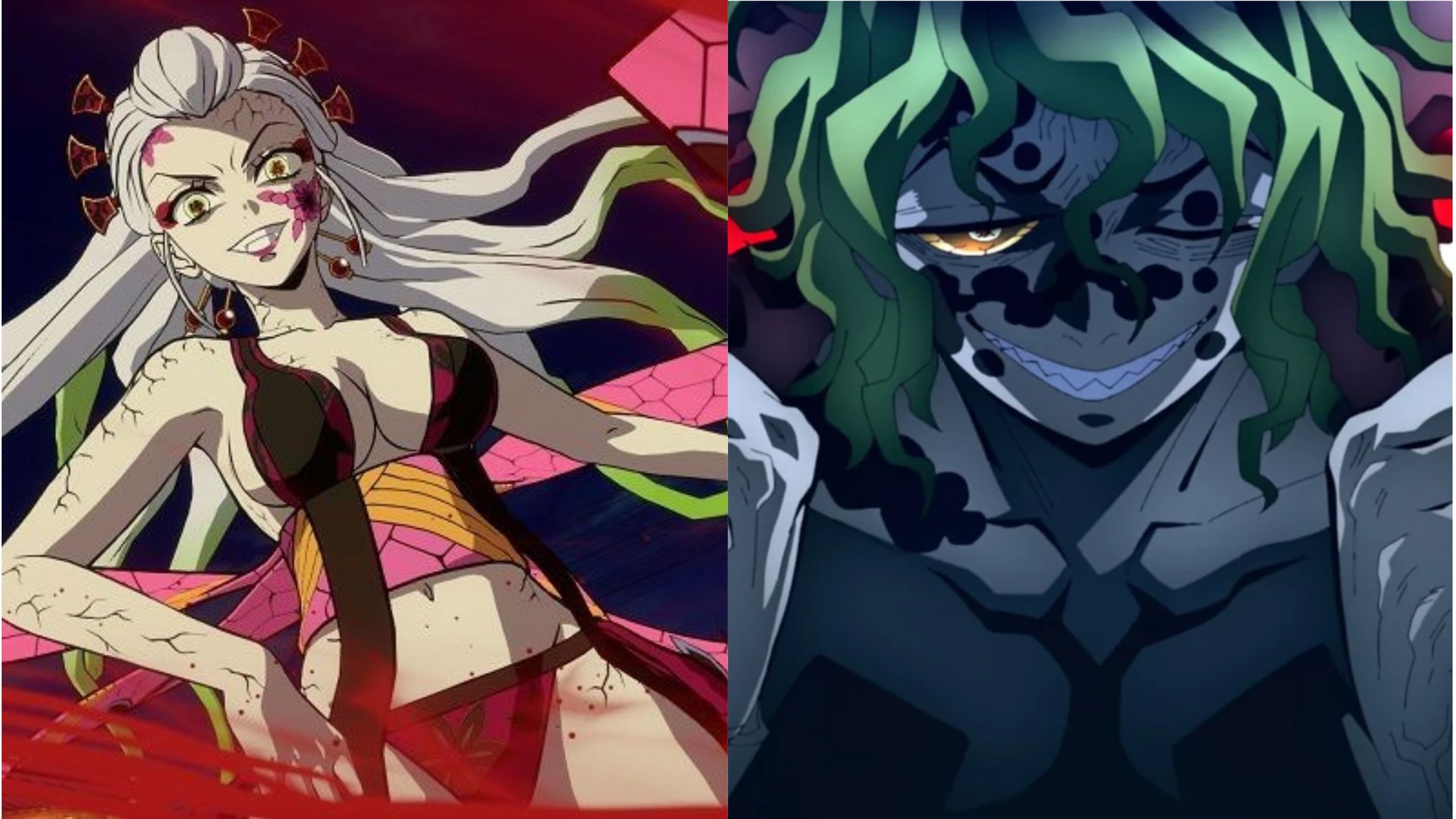
In their final moments, as they faced the inevitability of death, Daki and Gyutaro’s bond was on full display.
The siblings, who had been through so much together, were once again united in their shared fate.
The moment they shared in their dying moments was heartbreaking, a reminder that even in the face of overwhelming darkness, the bond between siblings can never be broken.
Daki’s Name as a Reflection of Her Tragic Life
The story of Daki, or Ume as she was once known, is a poignant reminder of the power of names and the weight they carry.
Her name, which on the surface seems beautiful and delicate, hides a much darker truth one that reflects the suffering and tragedy that defined her life.
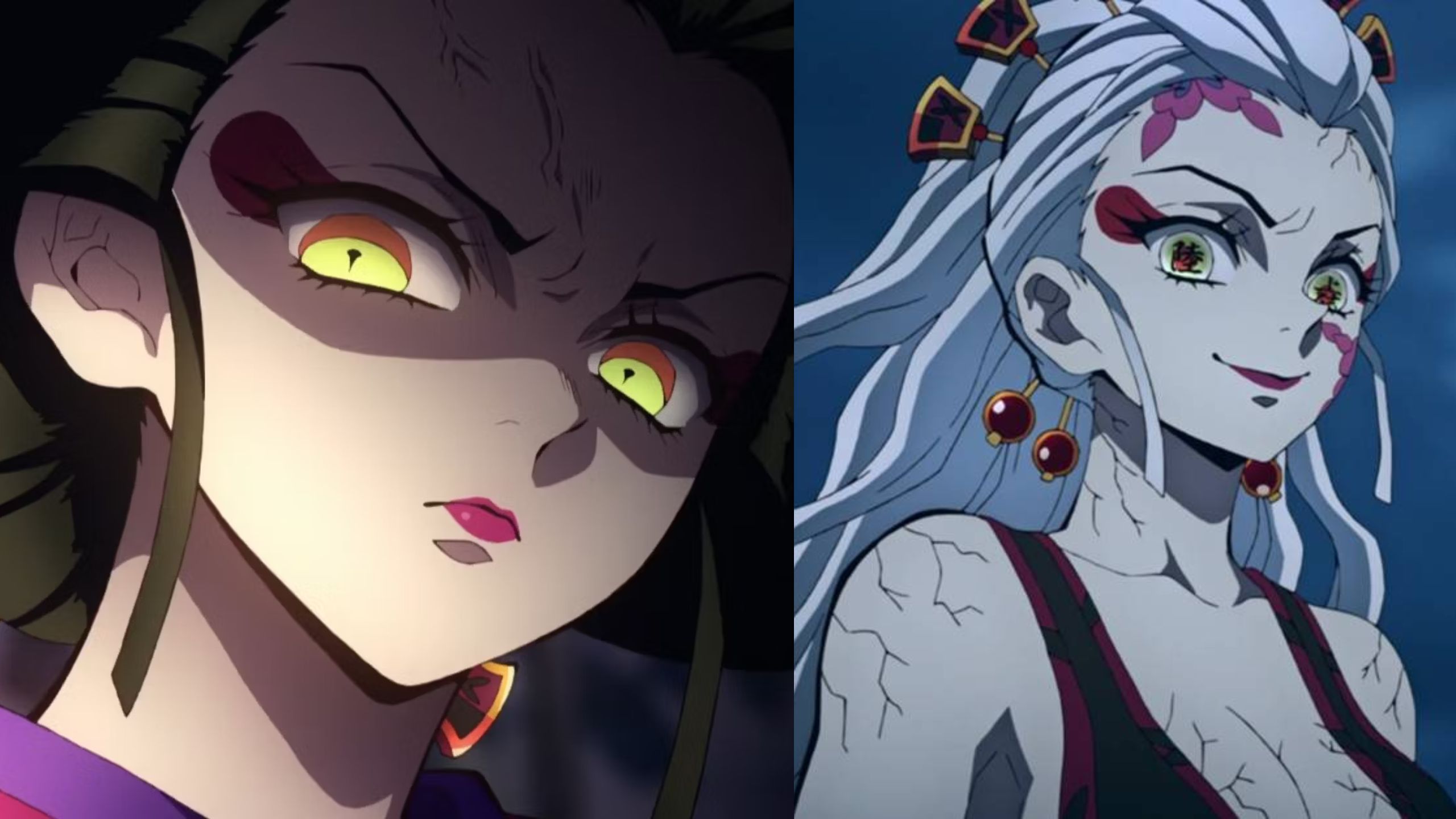
From her humble beginnings in the Entertainment District to her transformation into a powerful demon, Daki’s story is one of resilience in the face of unimaginable pain.
In the end, Daki’s name serves as a metaphor for her life a life that was outwardly beautiful but marred by a deep and lingering darkness.
Her name, like her story, is a reminder that even in a world as brutal as that of Demon Slayer, there is beauty to be found in the most unexpected places, and that even the strongest demons were once vulnerable humans, shaped by the hardships they endured.


